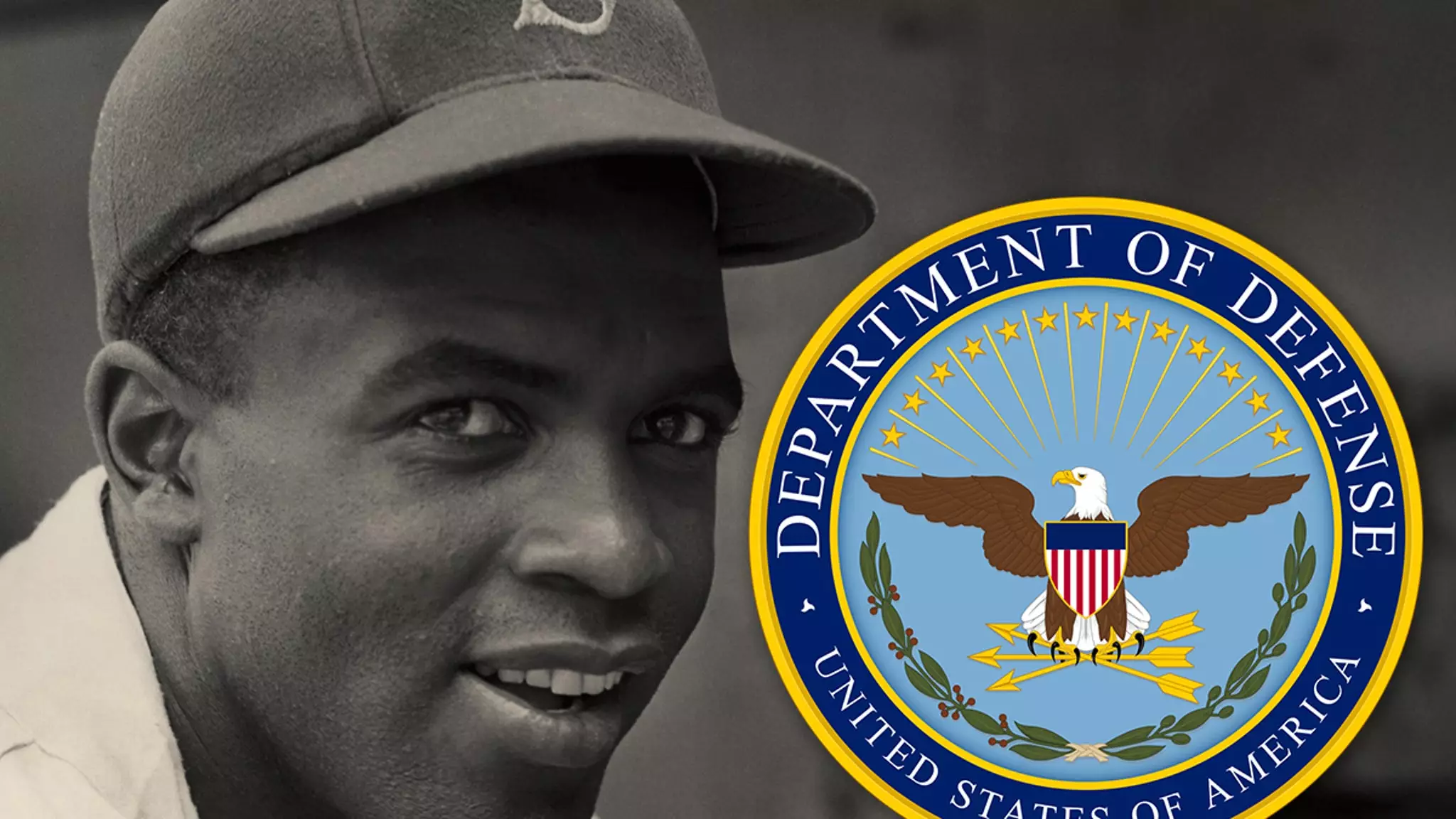The story of Jackie Robinson transcends the realm of sports; it vibrantly resonates with the struggles and triumphs of a society seeking equality. His unparalleled contributions to baseball as the first African American to break the color barrier in Major League Baseball (MLB) are commonly celebrated, but less often acknowledged is his noteworthy service in the United States Army during World War II. Recently, a poignant narrative detailing his military journey was removed from the Department of Defense (DoD) website, only to be reinstated within a day after public outcry. This incident reflects broader societal tensions related to diversity, equity, and inclusion (DEI) within the military—a topic fraught with complex implications in today’s political landscape.
Unraveling the Controversy
Initially, the removal of Robinson’s story appears to have stemmed from an overarching push by certain factions within the Pentagon to minimize DEI-related content. A Pentagon Press Secretary’s statement framed this action as part of a broader agenda to eliminate “Woke cultural Marxism” from the Defense Department, asserting that anything regarded as divisive undermines military cohesion. The swift restoration of Robinson’s narrative, however, reveals a disconnect between bureaucratic policies and public sentiment. The rapid response indicates that Robinson’s legacy as a war hero remains revered, even amidst ideological battles over how inclusive narratives should be portrayed within government platforms.
Military Service and Equity in History
Robinson’s story serves as a critical reminder of the sacrifices made by countless individuals for the country. Drafted into the military in 1942, he served valiantly in the 761st “Black Panthers” tank battalion, where he demonstrated courage and leadership far removed from the baseball diamond. His experiences in the military deserve to be amplified, not marginalized in the face of current narratives. This is not merely a question of historical accuracy; it’s an essential conversation about the inclusion of diverse perspectives in the retelling of American history.
The Fighting Spirit of a Nation’s Heroes
As Jackie Robinson’s contributions continue to inspire new generations, the recent attempts to downplay his military service highlight an ongoing struggle within our discourse surrounding race, heroism, and representation. President Trump’s plans for a Jackie Robinson statue in the National Garden of American Heroes underscore the need for a more significant recognition of such complex identities within our national narrative. Robinson, alongside the Navajo Code Talkers and the Tuskegee Airmen, exemplifies how African Americans have served selflessly in defense of freedoms that were often denied to them at home.
In the grander scheme of societal dialogue, Robinson’s dual legacy—both as a military hero and as a sports pioneer—serves as an avenue to bridge divides. It compels us to confront uncomfortable truths while celebrating the rich tapestry of experiences that have shaped America. More than ever, it’s crucial that narratives embrace the multifaceted identities of individuals like Robinson rather than relegating them to convenient historical footnotes in the ongoing debate over equity and representation.

